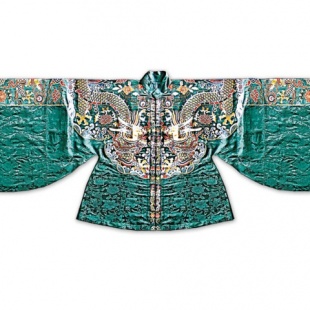The fabric of Chinese culture


Threads of the past
The value of hangluo is derived from two main aspects. First, its exceptional raw materials. The climate in the region is mild, making it an ideal place for mulberry cultivation. Second, the technique is incredibly refined.
Mulberry silk nourished by the soil and water of the Qiantang area has to go through a series of steps — including soaking, reeling, warping, threading the heddles and reeds, waxing, and shaking the warp — before it can be woven on the machine. The rough fabric then undergoes a fine-tuning process and dyeing to become the exquisite hangluo gauze.
During the golden era of the hangluo-making industry, there were at least thousands of households involved in the entire production chain, running related businesses from sericulture to dyeing workshops, especially around the Genshanmen area in Hangzhou.
As time passed, the loom used to produce hangluo underwent several transformations, yet the production process still requires a large amount of meticulous hand craftsmanship.
In an era of mechanical production, inheriting a traditional craft is not easy, says Zhang Chunqing, 44, head of the Hangluo Conservation Organization.
Before weaving hangluo on the loom, there is almost a monthlong process of organizing the warp and weft threads.
"Similar to the practices of the Song Dynasty, we soak the silk in clear water and add a secret ancestral formula. It takes 25 to 28 days for the silk to be ready, and only then can we weave the fabric, resulting in a lightweight, cool, and comfortable gauze," explains Zhang.





































